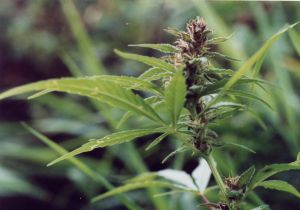Conviction of Medical Marijuana Co-Op Manager Reversed
An appeals court in California has reversed the conviction of a medical marijuana co-op manager, who had been convicted of selling cannabis for profit and sentenced to six months in jail. 
Los Angeles medical marijuana lawyers know this sets a positive precedent for similar criminal cases brought in California in the future. Although marijuana sales are still considered legal under federal law, this case could have major implications for future state court criminal trials.
The appellate court found that the San Diego Superior Court judge who had initially ruled on the case had improperly barred the manager from presenting state law as a viable defense option. In fact, throughout the course of the trial, the judge had even gone so far as to call the state’s marijuana law a scam and referred to marijuana as “dope.”
From here, the case could go one of three places: the appellate ruling could stand, or the superior court could choose to retry it. The other alternative is that the California Supreme Court could choose to intervene.
This case is important to others for several reasons. The first of which is that it establishes court’s recognition of the right of medical cooperatives and dispensaries to operate under state law.
Another reason is that it reinforces guidelines handed down in 2008 by the state’s attorney general that a patient doesn’t have to proactively “till the soil” in order for a cooperative to be considered legitimate. Prosecutors have continued to ignore this guidelines in their criminal proceedings. What this appellate court said was that collective and cooperative members, i.e., patients, don’t have to participate in actually growing the plant. This is sometimes referred to as the, “Make ’em grow it” logic. Their contribution, rather, may be in the form of monetary supplements. The fact that this individual had a large number of patients who were not actively participating in the cultivation process should not have prevented him from mounting a defense in line with the Medical Marijuana Program Act, the court ruled.
Just in San Diego, more than 100 collectives have been shut down based on this faulty premise.
This case actually stems from the second time this co-op manager faced charges for marijuana sale.
In the first case, the Navy veteran was acquitted when a judge ruled he could present evidence of the state’s marijuana law as a defense. But the prosecutors couldn’t drop it. They filed another criminal case against him, essentially for the same actions (though different instances, as otherwise it would have been double jeopardy). What happened was the prosecutor was instrumental in setting up the exact same undercover sting that provided the basis for his arrest in the first case, and then had him arrested for his subsequent actions. It’s clear she was hoping to get a more sympathetic judge the second time around, and she did. In that case, the judge would not allow testimony regarding state law to be heard. He was convicted last year and filed his appeal in November.
While law enforcement agencies and prosecutors continue to try to curb storefront facilities via criminal action against those who are simply trying to provide a valuable service to ailing individuals, this case reinforces the right of dispensaries and co-ops to not only exist, but to thrive.
Continue reading
 Cannabis Law Group's Medical Marijuana Legal Blog
Cannabis Law Group's Medical Marijuana Legal Blog













